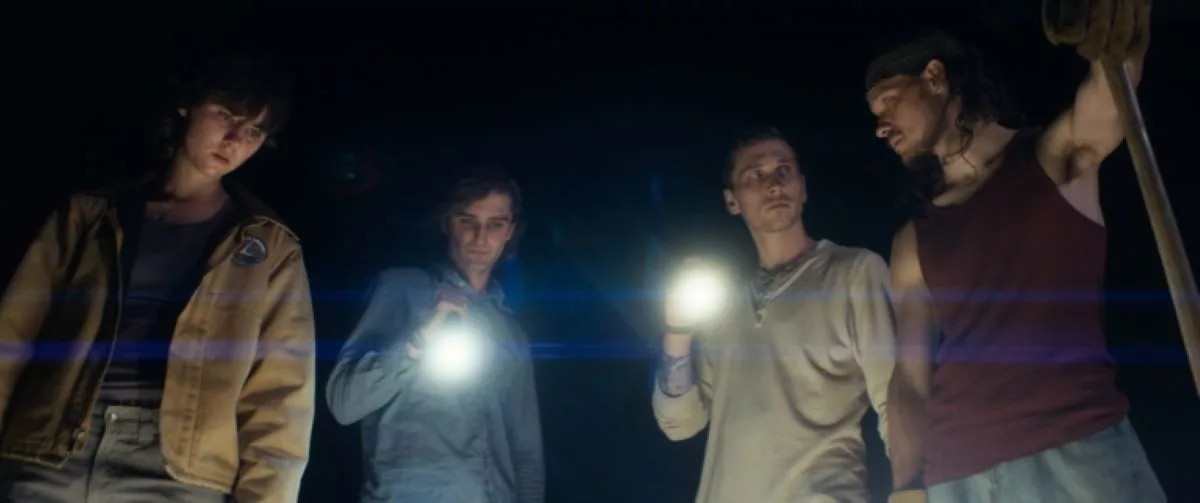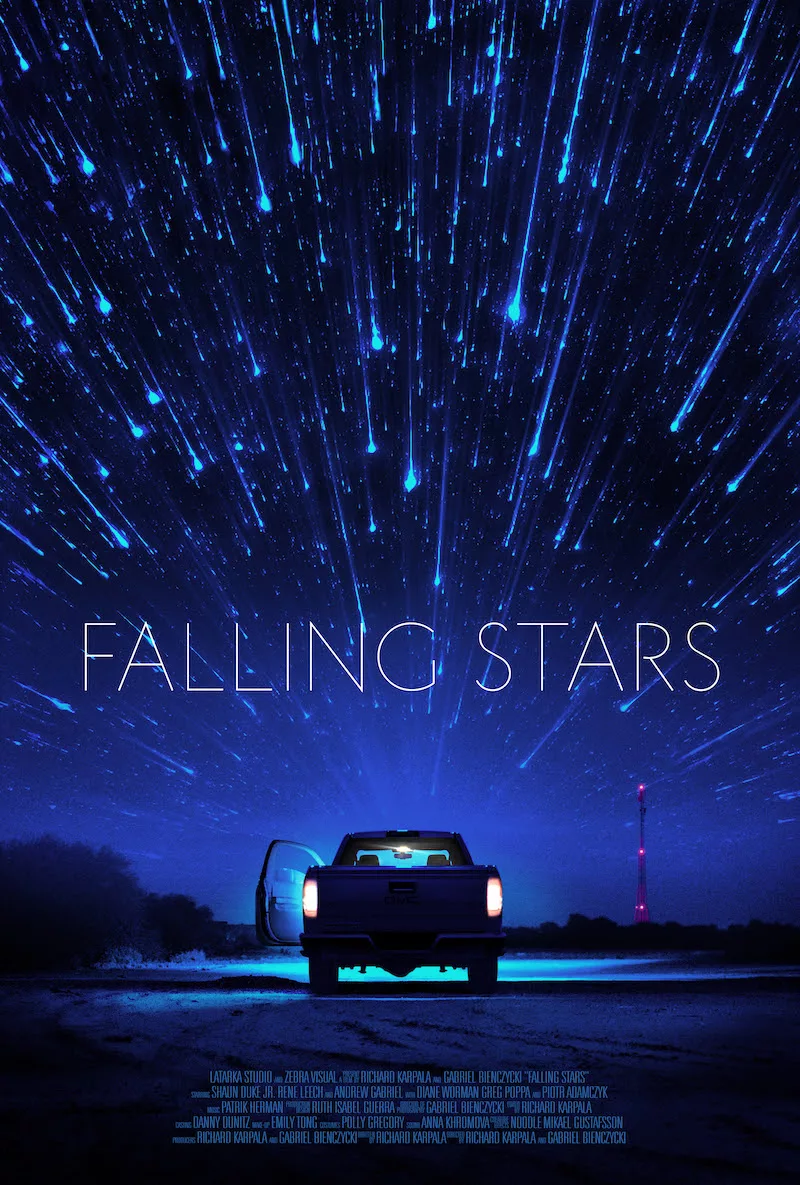Measured in its world-building and tactfully hinting at horrors beyond what's depicted on-screen, "Falling Stars" embodies both the effectiveness and trappings of the "less is more" approach when showcasing horrors. Set in a world where witches come to Earth in the form of falling stars to take humans away unless they're appeased through harvest and ritual, Gabriel Bienczycki and Richard Karpala's film offers just enough to terrify while entrusting its audience to fill the contours with their imagination. It's an ambitious slice of micro-budget filmmaking that uses the canvas of isolated rural life to paint a relevant story about living in a world where violence threatens at every corner.
The film follows three brothers–Mike (Shaun Duke Jr.), Sal (Andrew Gabriel), and Adam (Rene Leech)–who live in the inland empire in a world wherein witchcraft and the existence of witches have been recognized. They go with their friend Rob (Greg Poppa) to a site in the desert where Rob claims to have buried a witch he killed. After arriving at the burial site, they accidentally desecrate the witch's body, not knowing that their actions have unleashed a curse upon them. As they flee, Rob is swiftly taken. The brothers go to their mother (Diane Box Worman) for guidance and advice, and she shares that the only way they can lift the curse is to burn the body of the witch before sunrise. The trio begrudgingly head back out to the desert, aware that they've been marked and that at any point during their trip, they could be abducted just like Rob.
As high-octane as that premise sounds, the film is much more meditative in its pacing, opting for the terror of revelation rather than sensational jump scares. The premise Karpala and Bienczycki have conjured up is laced with all too familiar relevancy. Time has a way of transforming fear into curiosity, and it's evident that for the younger brothers, Sal and Adam, the stories they've grown up with around the dangers of witchcraft intrigue more than they frighten; any danger that has been promised seems intangible to the thrills to be had of seeing a witch up close. Sal and Adam are coming of age in a world where the people they know can disappear in an instant; how is one to cope with the presence of otherworldly violence other than to chase adventure, no matter the cost? In this sense, the film evokes recent films like "Spontaneous" or this year's "Gasoline Rainbow," which focus on how youth are growing up in a world of ever-present violence.
This foreboding sense of dread is an aspect that Bienczycki, who also doubles as a cinematographer, details immersively. He hauntingly renders the stretch of the inland empire that the boys call home as its own siren's call; the vast and naturalistic beauty of the desert roads only hides a deeper darkness. Bienczycki frequently keeps his camera focused on how the night sky is rife with stars; there's an astute subversion of this idea that when we look to the sky, we're reminded of how insignificant we are in the grand scheme of the cosmos and that there may be life out in the great beyond. Indeed, his piercing lens confirms not only that we are insignificant but the life "out there" only seeks to prey on us; it's far from beautiful. His focus on the stars also embodies the fear that the brothers feel throughout the film, as if to avert your gaze means that the second you look back, you might see a star fall; it's better to remain transfixed so you can see what's coming.
While this world is realized, the clunky script often leaves the actors delivering exposition, choosing between informative or emotive. In one scene, as the boys drive towards the witch's burial site, Rob and Mike discuss the latter's encounter with the witch while swapping life updates. Conversations between two characters can make for some truly thrilling sequences. Still, this scene, which runs for quite a bit, lacks the gravitas and slinking sense of alarm to elevate even the most expositional dialogue. It feels as if the characters are burdened by the urgency to share as much backstory as possible with the audience before the action starts, rather than two friends in natural conversations. There's a subplot involving a radio show host, Barry (J. Aaron Boykin), and his assistant, Elana (Samantha Turret), where they try to listen to stories of first-hand accounts from those who have personally encountered witches. There's interesting commentary about how people will commodify spectacle and try to use a global epidemic to boost their own standing (many of the callers are weeded out by Barry as being fake). Still, it feels too cursory to the film's main drama.
Once the plot gets underway, it's easy to guess where "Falling Stars" is going, and Karpala and Bienczycki don't let their film deviate from its chosen flight path once the brothers decide they have to go burn the body of the witch. While the destination may be obvious, Karpala and Bienczycki have fun with the journey, exploring the downside of how spontaneous action can lead to devastating and life-changing consequences while simultaneously not condemning youth for making rash decisions (especially those amid a global crisis). Even if it doesn't take full advantage of its premise, "Falling Stars" has enough visual and thematic magic to dazzle and horrify.




















